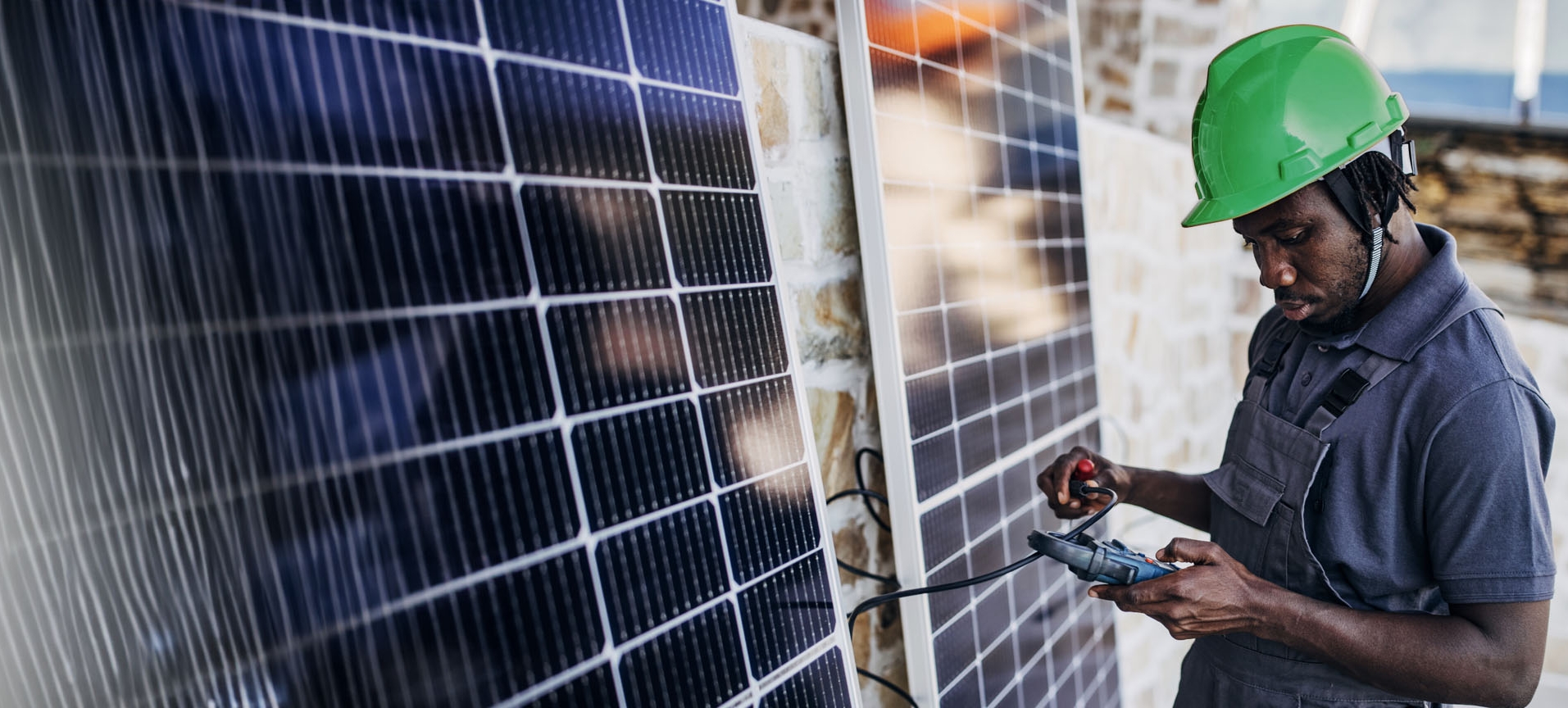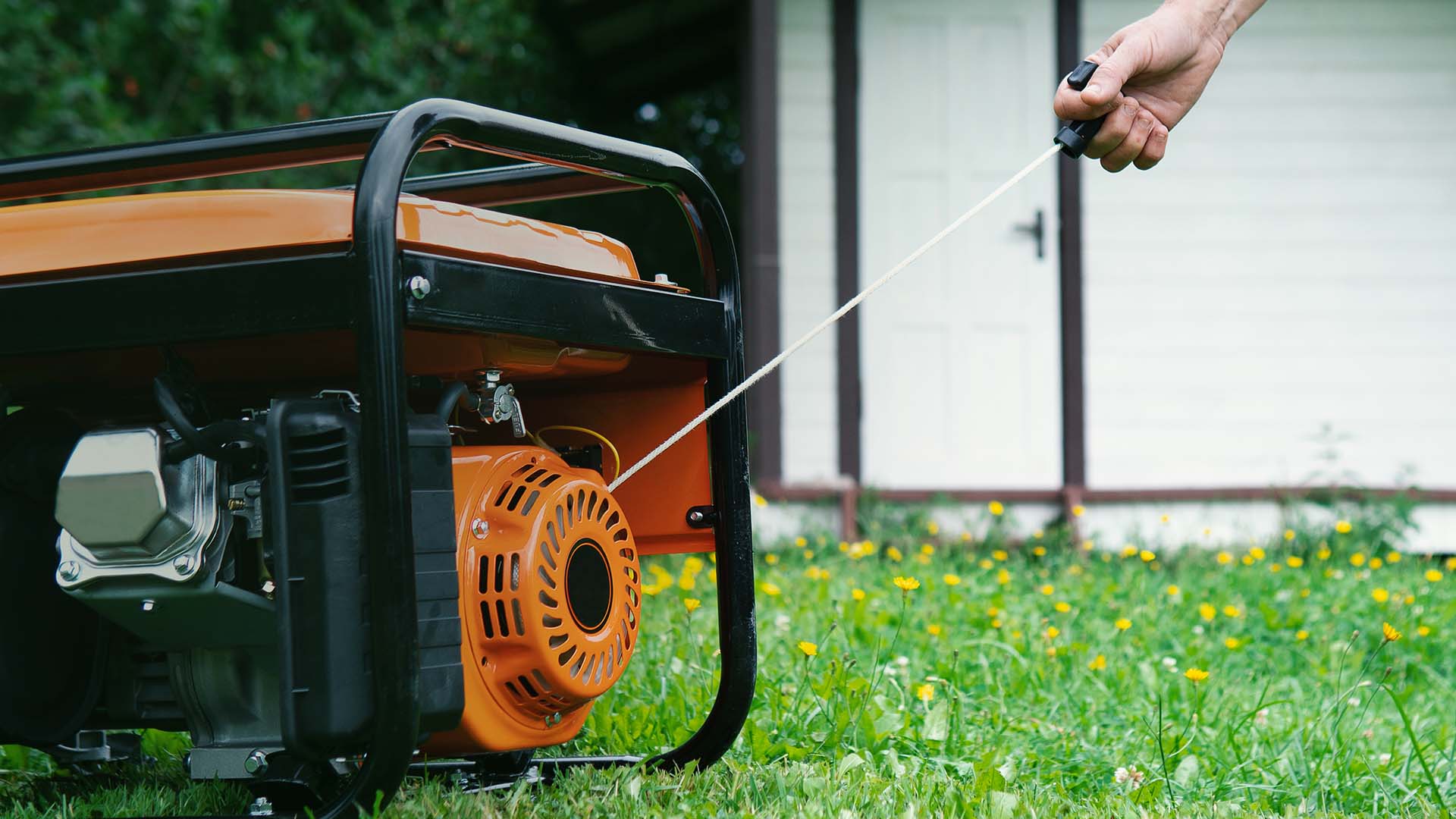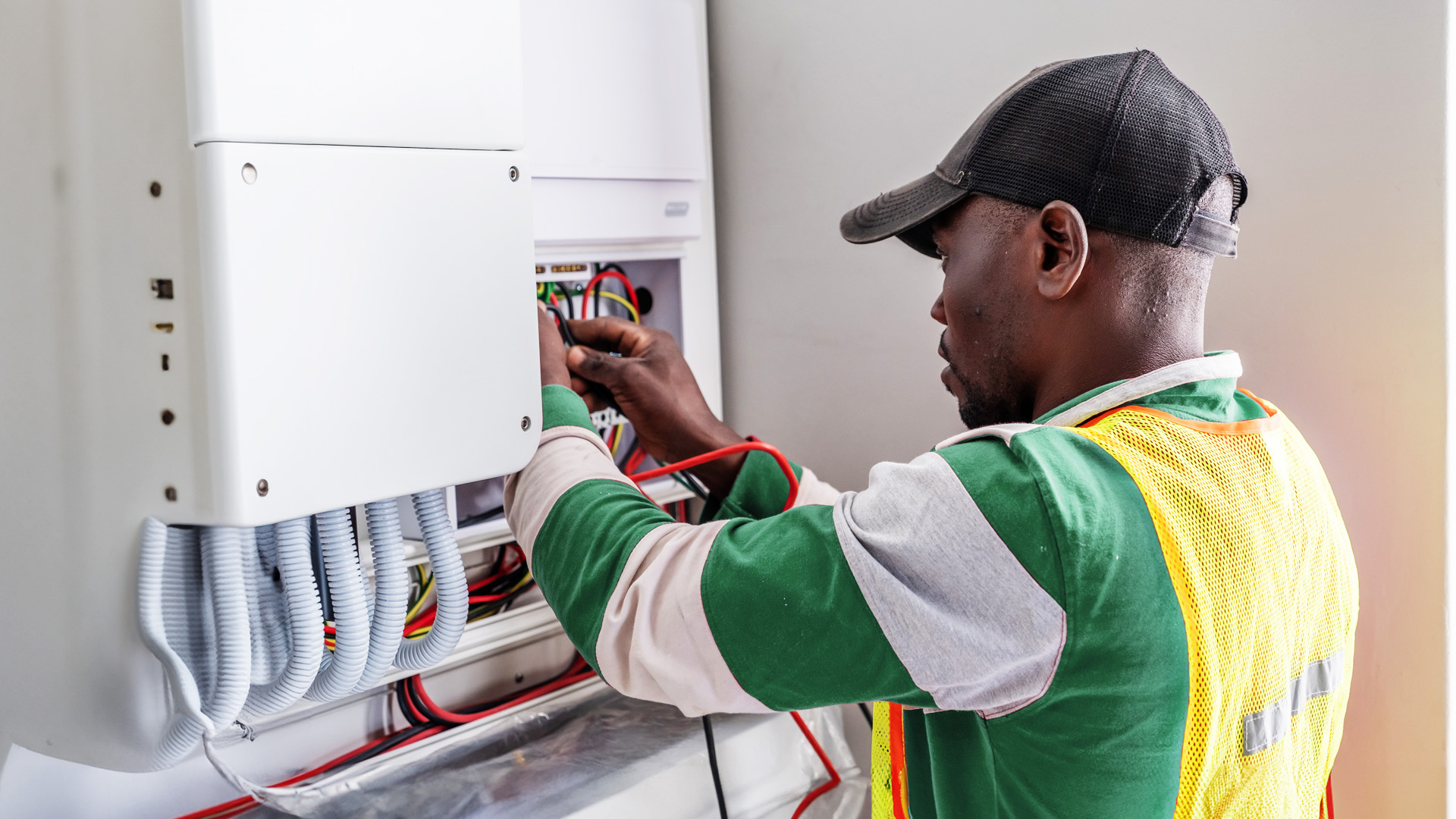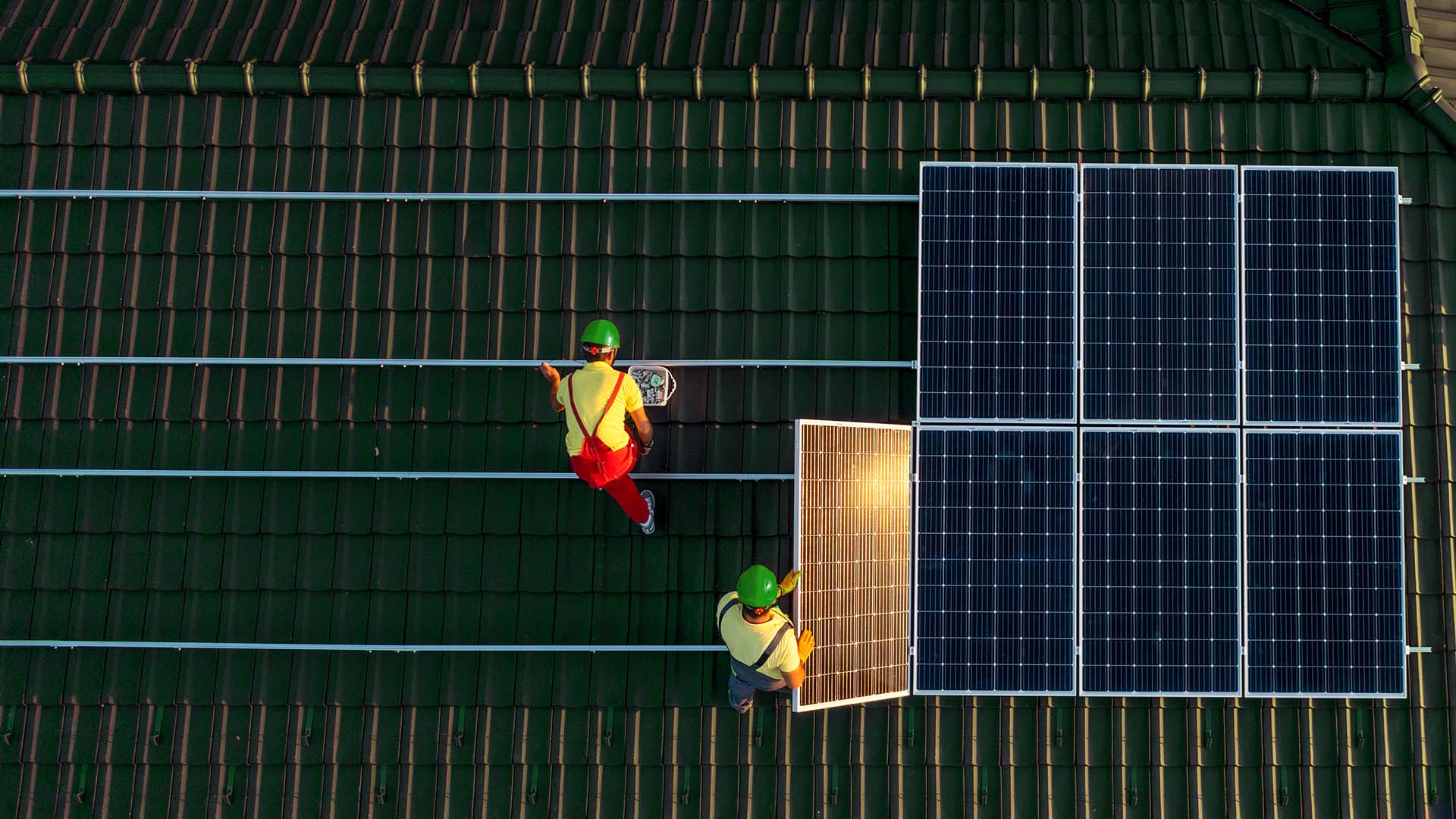Renewable energy is rapidly becoming non-negotiable as a part of business planning, whether you’re in a corporate or medium-sized business. Indeed, in South Africa, turning to renewable energy solutions is useful even if you’re a small business owner – it removes the uncertainty caused by South Africa’s unstable grid supply and brings benefits like cost savings, sustainability, and reliable electricity, no matter what your energy needs might be. Despite continued climate denialism in some quarters, adopting renewable energy solutions can help your business achieve compliance and boost operational efficiency.
What is renewable energy?
Renewable energy is energy generated from sustainable sources, rather than unsustainable resources (like fossil fuels) that will eventually run out. There are several ways to harvest abundant energy in various forms from the natural environment. Renewables are part of the solution to climate change and global warming, as they are more environmentally friendly to produce and use than fossil fuels like coal, oil, and gas.
Non-renewable energy sources pollute the environment in more ways than one. Although much of this damage is localised around sites where fuels are mined, extracted, or refined, the most serious fossil fuel pollutants are harmful greenhouse gas emissions, which contribute to global warming everywhere. These gases are the waste products of fossil fuels burnt in engines and power plants. Renewable energy sources help to address the climate crisis by emitting less greenhouse gas.
Deciding on renewables
Implementing a renewable energy approach for your business at any level is complex, partly because it involves an upfront cost in equipment, time, and resources. Consider this step-by-step approach:
- Assess your energy needs
Whether you run a small business, a shop, a large-scale factory or warehouse, you need to understand your energy consumption and expose any inefficiencies in how you use energy. Conduct an audit of how much of your electricity bill each operation in your business is responsible for.
- Choose the right renewable solution
Your energy needs, your business or industry type, and its location will all be factors in choosing the right solution, so get expert advice.
- Partner with experts
To ensure your system is right for your needs and properly installed, get professional advice about installation and maintenance from energy providers, and expert financial support from a reputable lender.
- Monitor performance and usage
Ensure that your sustainable electricity solution lets you track your power use, to better manage the cost.
Renewable energy options for your business
Solar photovoltaic (PV) energy has gained traction rapidly across SA’s business and residential sectors. Our climate makes solar PV the most widespread option, and it’s likely to remain popular – but wind and biomass energy sources also offer ways to diversify your business energy use.
- Solar
Solar offers the most abundant renewable energy. Solar PV converts sunlight directly into electrical current, which can power heating, cooking, lighting, and other electronic devices. Roof-mounted solar panels deliver about 30 years of consistent use before they need to be replaced – a significant cost saving over time.
There are many different types of solar installation, so it’s a flexible solution for any size business. Options include grid-tied solar PV systems, off-grid systems that are completely independent (which may include generators, to keep your business running when the weather is overcast), or a combination of grid connection, solar PV, and backup options like generators. The last mentioned may also enable you to sell excess power generated by your renewable system back to the grid, if your local municipality offers that option.
A fuel source that never runs out and reduced costs for electricity, fuel, maintenance, production stoppages, and waste management
Depending on the number of panels and batteries you install and the size of your inverter, solar PV power can solve energy needs from the lighting and power required to run a small, office-based business, to powering large-scale agricultural irrigation or industrial processing operations.
- Wind
Wind power generates energy through large wind turbines, built either on land or offshore in large bodies of water. Wind spins turbines that generate electricity – the most familiar turbines spin on a horizontal axis like a windmill, but developments in vertical-axis turbines are now producing quieter wind power systems that generate electricity at lower windspeeds and pose fewer threats to birds, bats, and insects.
Wind turbines have a long lifespan and need less maintenance than power plants fuelled by coal, gas, or nuclear fuels. SA’s coastline and average wind speeds make it an ideal country for wind power, but it takes significant capital to build and run a wind farm.
It’s not usually an option for small and medium businesses – wind power is more suited to large-scale business applications like mining, or private power producers generating electricity for industrial parks or to sell to the grid.
- Bioenergy
Bioenergy, or biomass energy, produces bioethanol and biodiesel from decomposing organic materials like garden clippings, agricultural waste products, manure, and municipal solid waste. It’s an affordable way to generate energy in poorer rural areas for cooking, lighting, and heating – or to power generators that run electrical appliances.
By turning organic waste that would otherwise decompose into methane (a greenhouse gas with significant heating effects) into a fuel that burns to produce carbon dioxide (still a greenhouse gas, but one that traps less heat than methane), biomass energy can help lower your carbon footprint.
It also reduces the use of wood, coal, or charcoal as fuels for cooking and heating, which is good for rural air quality and human health, and combats deforestation and soil erosion. It can be effective in waste reduction and sustainable energy production, and it can generate additional revenue streams for industries that produce organic waste as by-products.
Biomass systems can be designed at the scale you need – from a fuel source for 1 farm or community, or medium-sized biomass plants for microbreweries and small-scale food manufacturers, up to an industrial scale for businesses that need to recycle large amounts of organic waste – like paper mills and sugar factories.
Building renewables into the energy mix for your business undoubtedly has clear benefits – including a fuel source that never runs out and reduced costs for electricity, fuel, maintenance, production stoppages, and waste management. However, the initial expense of installing a system can be a barrier to entry, and your system must be designed with both the capacity and the distribution infrastructure to ensure that it delivers energy to every sector of your operations at the right scale.
Section 12B of the Income Tax Act allows South African businesses (of all sizes) to claim accelerated depreciation on renewable energy investments. Nedbank offers support, guidance, and financing for renewable energy across the business spectrum – whether you want to set up your small business to be smarter and more sustainable, or you need corporate and investment funding for large-scale green industries and projects.
Explore Avo Solar by Nedbank for affordable solar power packages that can provide turnkey solutions for renewable energy in your business – from needs assessment and system design to financing and installation.








